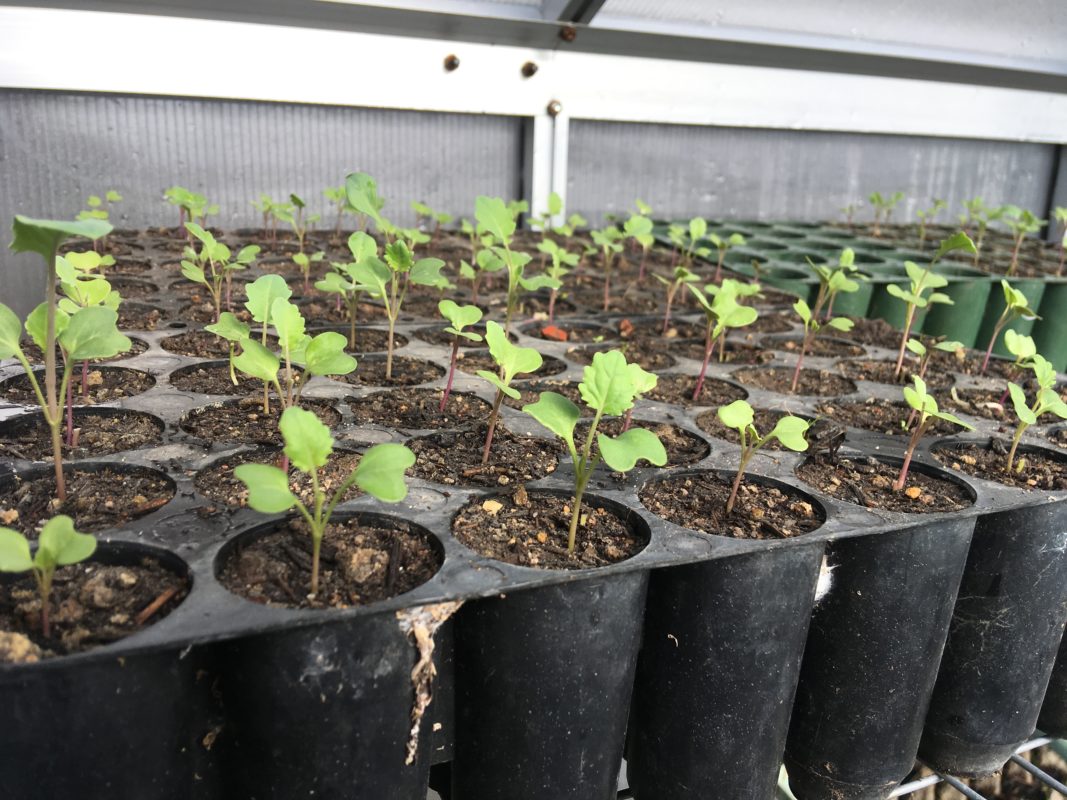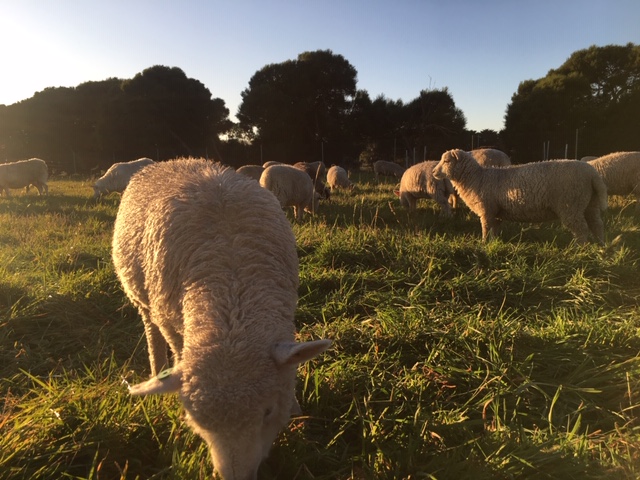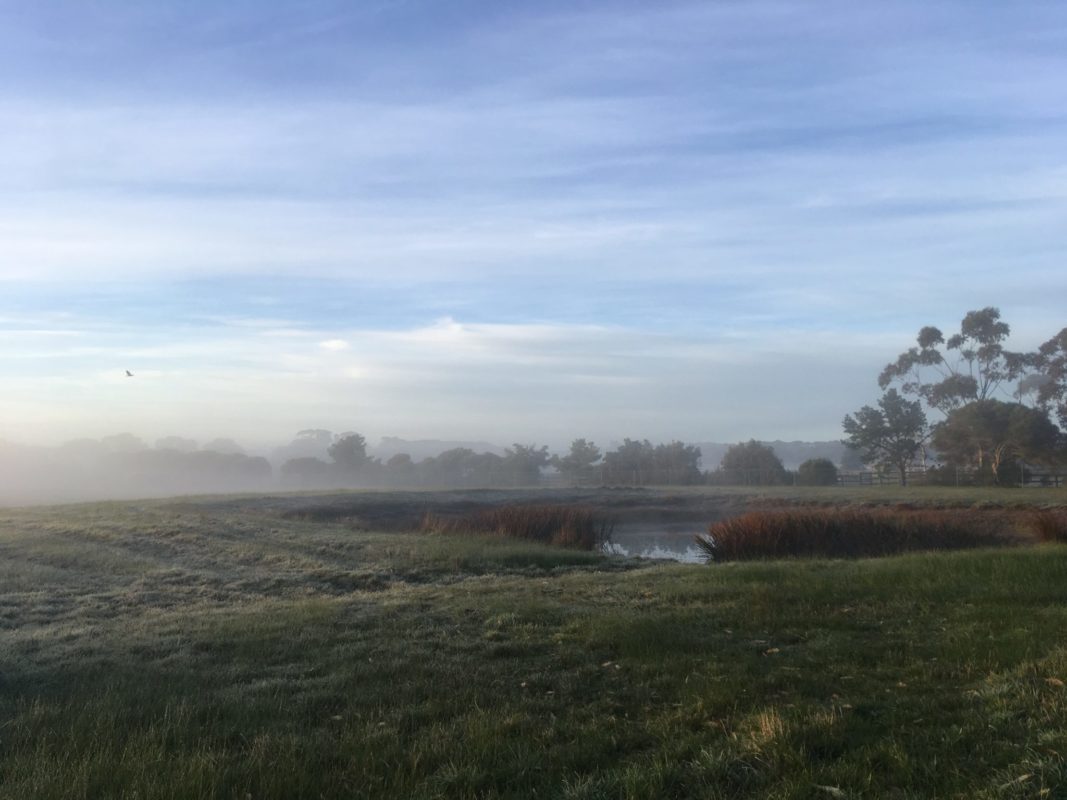There’s a real change in the air at this time of year. The whole farm looks different. There are only a few stubborn leaves on the trees- all the rest have fallen. Our lowest lying paddocks are muddy and sloppy. And we’re crunching our way across frosty grass in the mornings to collect eggs.
The pumpkins have died off and been harvested. The zucchini are succumbing to mildew. We’ve pulled out our tomatoes- and we have chutneys and pasata to see us through to next summer. The soil is too cold now to germinate most seeds, but we’re still planting broad beans, radish and greens. We’re putting out the last of our garlic this week. And we have a few final plantings of broccoli and silver beet in the greenhouse, nearly ready to go.

In the kitchen we’re moving away from salads. Going for heartier roasts, soups and curries- and we’re drinking lots of tea picked straight from the garden to try and defrost our chilly fingers!!
With the help of a few of our veggie box volunteers we’ve planted 200 natives this month. And we’re starting to plan our pruning, and any bare root fruit tree purchases. I have my eye on some currants. Matt is less convinced 😉
The sheep and ducks are being moved around the pasture every day or two- not because there’s no grass left, but to prevent their feet damaging and compacting our soil. The ducks are loving the wet- they adore playing in puddles. The sheep don’t enjoy the rain as much, but they take the rain over hot 30+ days. Some sheep farms are already starting to lamb but we’re only just breeding. Because Finn sheep commonly have multiple births, their lambs are quite small. Like all babies they have trouble regulating their body temperature, and one of the most common causes of death is exposure.
By lambing in late Spring we’re able to avoid most of coldest weather and give our beautiful bubs the absolute best chance. So we’re currently wrangling rams, and separating out our ewes to make sure that they don’t ‘keep it in the family’ so to speak! You can see more on what exactly we’re breeding for here.

The chooks have stopped moving. The caravan is too heavy to move through mud without bogging, or doing serious structural soil damage. So we’ve parked it in one of the highest paddocks, close to the driveway. We’re putting over a tonne of green waste, wood chips and organic veggie scraps in each week. And they are slowly manuring, mixing and composting a deep layer of soil for us. They do the bulk of the work in exchange for the huge increase in bugs they find.
They’ll stay in this paddock until the soil dries out again. Some years that means early August, some years late September. We’ll plant the paddock out when they leave, and by next year it should be one of the best on the property!
So that’s us, this May. We’re looking forward to welcoming visitors back to the farm in next little while, so you can all see for yourselves!

